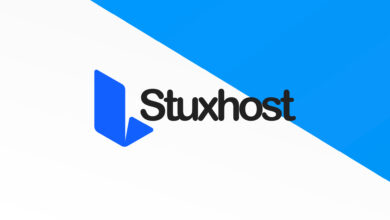Top 7 Challenges Facing Blockchain Enterprises In 2023

Top 7 Challenges Facing Blockchain Enterprises In 2023? Blockchain technology has gained significant attention and adoption in various industries, promising transparency, security, and efficiency. However, like any emerging technology, blockchain also faces several challenges that enterprises need to address to fully leverage its potential.
Introduction
Blockchain has emerged as a transformative technology with the potential to revolutionize various sectors, including finance, supply chain, healthcare, and more. However, as blockchain adoption continues to grow, enterprises face several hurdles that can impede their progress. Let’s delve into the top challenges facing blockchain enterprises in 2023.
Regulatory Uncertainty
One of the significant challenges for blockchain enterprises is the lack of regulatory clarity and consistency. Different countries and jurisdictions have varying approaches and regulations regarding cryptocurrencies, smart contracts, and blockchain technology. This regulatory uncertainty creates barriers to adoption and hinders the growth of blockchain enterprises. To overcome this challenge, industry participants need to engage with policymakers and regulatory bodies to develop clear and comprehensive regulations that foster innovation while ensuring consumer protection and security.
Scalability and Performance
Blockchain networks, such as Bitcoin and Ethereum, have faced scalability and performance issues as they handle a growing number of transactions. Slow transaction speeds and high fees limit the potential use cases for blockchain technology, especially in enterprise settings that require fast and efficient transactions. Scaling solutions like sharding, layer 2 protocols, and advancements in consensus mechanisms like proof-of-stake (PoS) can address these challenges. Enterprises need to carefully evaluate and implement these scalability solutions to unlock the full potential of blockchain technology.
Read More: 10 Tips for Stress Management In 2023
Interoperability
Blockchain interoperability refers to the seamless exchange of data and assets across different blockchain networks. The lack of interoperability hinders collaboration and integration among various blockchain platforms. Enterprises often operate on multiple blockchains or utilize existing legacy systems, making interoperability crucial for streamlining operations. Efforts like cross-chain communication protocols and standardization initiatives like the Inter-Blockchain Communication (IBC) protocol are emerging to address this challenge. By adopting interoperability solutions, enterprises can enhance connectivity and efficiency in their blockchain ecosystems.
Privacy and Data Protection

While blockchain provides transparency and immutability, it poses challenges concerning privacy and data protection. Traditional public blockchains store all transaction data publicly, potentially exposing sensitive information. Enterprises, especially those dealing with personal or confidential data, need to find ways to ensure privacy while leveraging the benefits of blockchain. Techniques like zero-knowledge proofs, privacy-focused blockchains, and off-chain data storage can help address these concerns. Striking a balance between transparency and privacy is essential for blockchain enterprises to gain user trust and comply with data protection regulations.
Energy Consumption

Blockchain networks, particularly those utilizing proof-of-work (PoW) consensus algorithms, consume a significant amount of energy. As concerns about climate change and sustainability increase, enterprises are under pressure to find eco-friendly alternatives. Transitioning to more energy-efficient consensus mechanisms like proof-of-stake (PoS) or exploring emerging technologies like directed acyclic graph (DAG) can mitigate the environmental impact of blockchain. By adopting greener solutions, enterprises can align blockchain technology with their sustainability goals and contribute to a more environmentally friendly future.
Talent Gap
The rapid growth and demand for blockchain technology have created a shortage of skilled professionals. Blockchain development and implementation require expertise in areas like cryptography, smart contracts, and decentralized applications (DApps). The scarcity of talent poses a significant challenge for enterprises looking to adopt blockchain solutions. To address this gap, organizations should invest in training programs, partnerships with educational institutions, and initiatives to attract and retain blockchain talent. Building a strong workforce will enable enterprises to navigate the complex landscape of blockchain technology effectively.
Read More: Computer Scanners: A Closer Look In 2023
Conclusion
As blockchain technology matures, enterprises must tackle the challenges that arise along the way. Regulatory uncertainty, scalability, interoperability, privacy, energy consumption, and talent gap are among the top challenges facing blockchain enterprises in 2023. By proactively addressing these challenges, enterprises can unlock the full potential of blockchain, drive innovation, and gain a competitive edge in their respective industries.
FAQs
Q1: What is blockchain technology?
Blockchain technology is a decentralized and distributed digital ledger that securely records transactions across multiple computers or nodes. It provides transparency, immutability, and trust in a peer-to-peer network without the need for intermediaries.
Q2: How can blockchain enterprises overcome regulatory uncertainty?
Blockchain enterprises can overcome regulatory uncertainty by engaging with policymakers and regulatory bodies to develop clear and comprehensive regulations that balance innovation and consumer protection.
Q3: What are some scalability solutions for blockchain networks?
Scalability solutions for blockchain networks include sharding, layer 2 protocols, and advancements in consensus mechanisms like proof-of-stake (PoS).
Q4: How can blockchain ensure privacy and data protection?
Blockchain can ensure privacy and data protection through techniques like zero-knowledge proofs, privacy-focused blockchains, and off-chain data storage.
Q5: What can blockchain enterprises do to address the talent gap?
Blockchain enterprises can address the talent gap by investing in training programs, partnerships with educational institutions, and initiatives to attract and retain skilled professionals in the field.












2 Comments